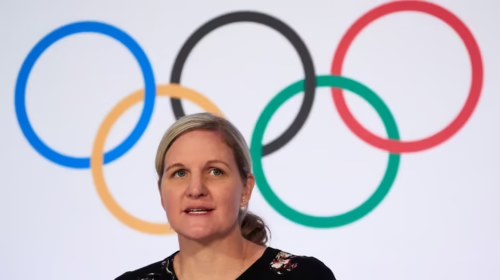In the ever-entangled world of Zimbabwean football politics, Walter Magaya’s ZIFA presidential ambitions face a major obstacle. The issue? A requirement of five O-Levels.
Magaya, a self-proclaimed prophet and founder of Prophetic Healing and Deliverance Ministries, is no stranger to controversy. Yet, this hurdle seems more bureaucratic than his previous legal battles. In an effort to overcome it, he, alongside former ZIFA vice president Gift Banda, allegedly orchestrated a secret meeting.
On October 10, 2024, at Number 10 Park Road, Bulawayo, a private gathering took place. ZIFA councillors from the Southern Region convened with Magaya and Banda, where they allegedly lobbied for constitutional amendments. The aim? To remove the O-Level requirement.
One of the participants revealed that Magaya and Banda requested the councillors to reject the clause requiring five O-Levels. They argued it hindered their aspirations for ZIFA’s highest offices. Magaya eyes the presidency, while Banda sets his sights on the vice-presidency.
Such political maneuvering isn’t new to ZIFA, but the timing is crucial, with elections scheduled for January next year. Magaya’s lack of formal qualifications casts a shadow over his suitability for the role, despite his vast influence.
The ZIFA Statutes, as they stand, demand educational integrity for executive positions. According to the draft, both the president and vice-presidents must have at least five O-Level passes. This clause serves as a safeguard, ensuring the leadership holds basic academic credentials.
But, as with many things in Zimbabwean football, the situation is murky. Critics of this amendment argue it violates Article 4 of the ZIFA Statutes, which guarantees non-discrimination and equality. The lines between fairness and exclusion blur here, especially considering the influence Magaya holds.
On October 18, ZIFA Councillors will gather in Harare to deliberate on these proposed amendments. The outcome could redefine the leadership framework within the association. The stakes are high. Not just for Magaya and Banda, but for ZIFA’s integrity.
The football association has long been mired in controversy. From match-fixing scandals to administrative failures, ZIFA’s credibility has taken a hit over the years. This upcoming election presents a crucial moment for reform—or further decline.
Educational qualifications aren’t merely bureaucratic red tape. They represent a baseline for competence. ZIFA’s push for integrity checks aligns with global football governance standards. FIFA itself has highlighted the importance of transparent and ethical leadership within its member associations.
Yet, Magaya’s supporters argue that football leadership shouldn’t be confined to academic achievement alone. Leadership qualities, they claim, go beyond formal education. In a country where many have faced educational barriers, this argument holds some weight.
But Magaya’s candidacy isn’t without its baggage. Previous allegations of fraud and rape hang over his reputation, casting doubt on his ability to lead with integrity. Banda’s record isn’t spotless either, with past accusations of match-fixing still haunting him.
Despite these controversies, both men remain significant figures in Zimbabwean football. Their influence on the game, especially in the Southern Region, is undeniable. But can influence alone justify circumventing the rules?
The upcoming meeting in Harare will likely be tense. Councillors are under pressure, not only from Magaya and Banda but from a public desperate for genuine reform within ZIFA. Football in Zimbabwe has stagnated, plagued by administrative mismanagement and political interference.
Reformists within ZIFA argue that adhering to the statutes, including the O-Level requirement, is crucial for rebuilding trust. After years of dysfunction, restoring faith in the association will require more than just capable leadership. It will demand transparency, accountability, and adherence to established standards.
As the clock ticks toward the January elections, the football community watches closely. Will the councillors uphold the current statutes, or will they bend under pressure? The answer could shape the future of Zimbabwean football for years to come.
Magaya and Banda’s aspirations may hinge on this constitutional debate. Whether or not the O-Level requirement remains intact, their candidacies symbolize the larger struggle for control within ZIFA. For now, the future of Zimbabwe’s football leadership remains uncertain.
The October 18 meeting will offer crucial insight into the direction ZIFA takes. Will it embrace reform, or will political machinations continue to dominate the beautiful game? Only time will tell.













